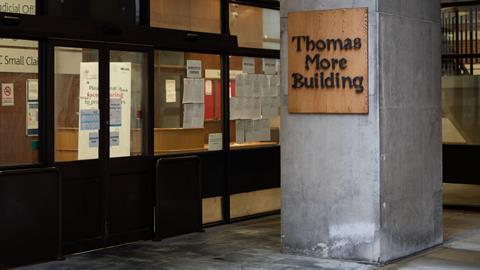The High Court has refused a firm’s attempt to charge a former client a further £145,000 almost three years after the apparent settlement of their costs dispute.
London firm Riverbrooke Solicitors Ltd had sent Sylvia Olukoya a final invoice for £13,000 after the legal ombudsman had stepped in to mediate a row about unpaid costs. There were no further dealings for another two years and nine months, until the firm delivered a bill headed ‘revised final invoice’ for the extra £145,000.
Olukoya filed an application for assessment of the bill and the matter went to the High Court (Senior Courts Costs Office) for a hearing in July.
Ruling in Olukoya v Riverbrooke Solicitors Ltd, Costs Judge Leonard assessed the ‘revised final invoice’ at nil. The court found the informal resolution brokered by the ombudsman, which limited costs and disbursements to the £13,000, was a ‘contractually binding agreement’ which had been paid. For that reason, Leonard found, the firm had no right to render the second invoice and needed – but did not have – permission to revise the first invoice, which had been a final, statute bill.
The court heard the initial dispute arose after Riverbrooke was instructed to advise on an employment tribunal claim. Its initial fee estimate was between £6,000 and £10,000, depending on whether there was a contested hearing. The final total claimed costs ended up around £85,000.
The client complained to the ombudsman, and eventually the firm agreed to send a final bill, in accordance with the terms of the informal resolution, to reflect the charges set out in the initial client care letter. The final invoice was paid in March 2020.
The court heard that the firm had explained when submitting its revised invoice that subsequent developments ‘required a reconsideration of the relevant matters’, namely that the ombudsman had also reported the matter to the SRA. The firm sought to argue that this showed Olukoya had been ‘deceptive’ in pursuing an ‘undisclosed claim’ with the ombudsman. Leonard said this allegation was unfounded and the report to the SRA did not have any effect on the informal resolution agreed between client and firm.
The judge said it was settled law that the question of a binding contract between parties, and the terms, required consideration of what was communicated between the parties.
‘It seems to me to be beyond doubt that when the claimant and the defendant accepted and put into effect the informal resolution brokered by the legal ombudsman they entered into a legally binding contract,’ Leonard said.
This article is now closed for comment.




























6 Readers' comments